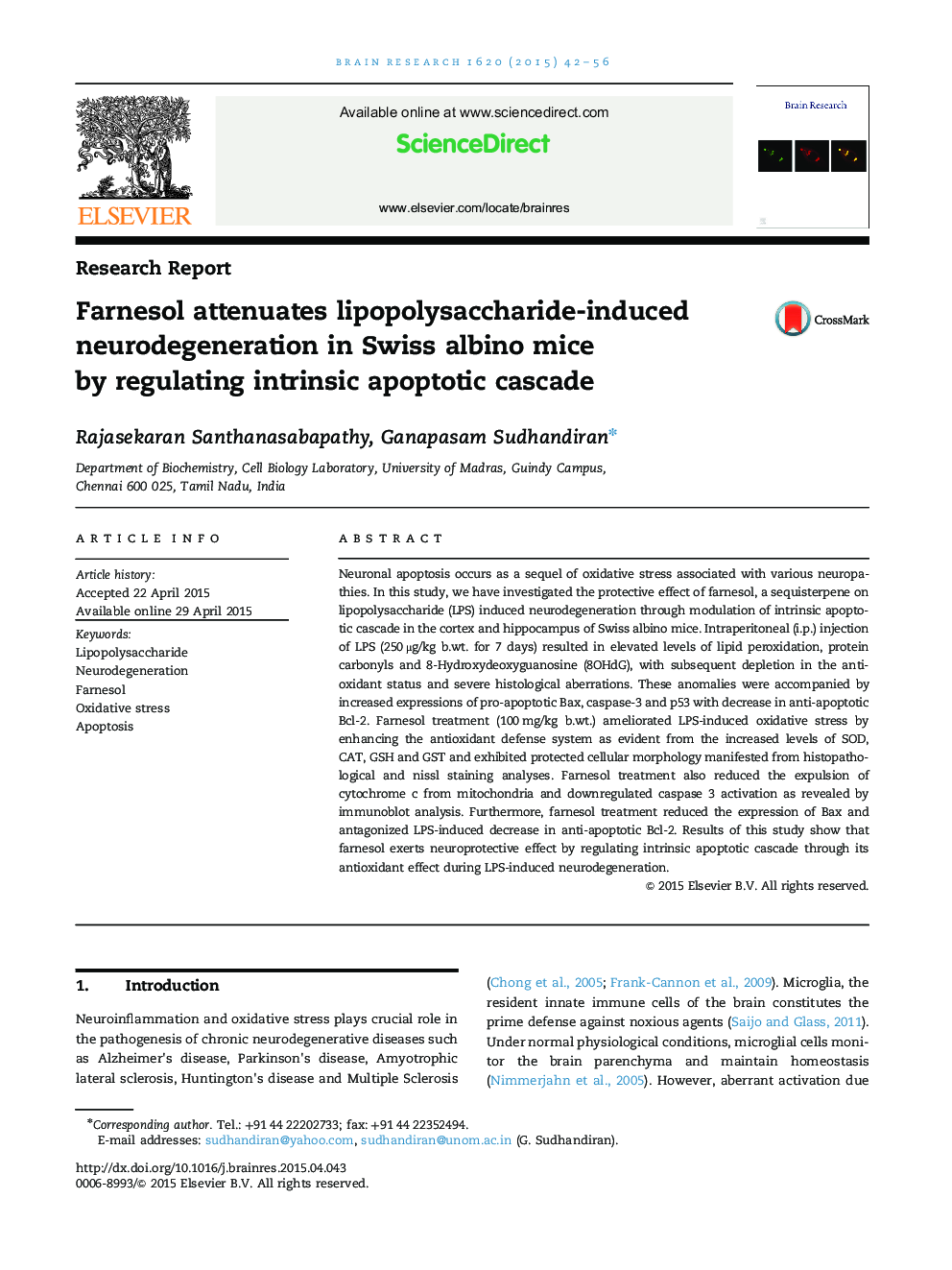| Article ID | Journal | Published Year | Pages | File Type |
|---|---|---|---|---|
| 6262974 | Brain Research | 2015 | 15 Pages |
â¢Farnesol possesses neuroprotective property against LPS-induced neurodegeneration.â¢Farnesol alleviated LPS induced oxidative stress.â¢Farnesol treatment fostered antioxidant defense system.â¢Farnesol inhibited apoptosis and protects neurons against neurodegeneration.
Neuronal apoptosis occurs as a sequel of oxidative stress associated with various neuropathies. In this study, we have investigated the protective effect of farnesol, a sequisterpene on lipopolysaccharide (LPS) induced neurodegeneration through modulation of intrinsic apoptotic cascade in the cortex and hippocampus of Swiss albino mice. Intraperitoneal (i.p.) injection of LPS (250 μg/kg b.wt. for 7 days) resulted in elevated levels of lipid peroxidation, protein carbonyls and 8-Hydroxydeoxyguanosine (8OHdG), with subsequent depletion in the antioxidant status and severe histological aberrations. These anomalies were accompanied by increased expressions of pro-apoptotic Bax, caspase-3 and p53 with decrease in anti-apoptotic Bcl-2. Farnesol treatment (100 mg/kg b.wt.) ameliorated LPS-induced oxidative stress by enhancing the antioxidant defense system as evident from the increased levels of SOD, CAT, GSH and GST and exhibited protected cellular morphology manifested from histopathological and nissl staining analyses. Farnesol treatment also reduced the expulsion of cytochrome c from mitochondria and downregulated caspase 3 activation as revealed by immunoblot analysis. Furthermore, farnesol treatment reduced the expression of Bax and antagonized LPS-induced decrease in anti-apoptotic Bcl-2. Results of this study show that farnesol exerts neuroprotective effect by regulating intrinsic apoptotic cascade through its antioxidant effect during LPS-induced neurodegeneration.
